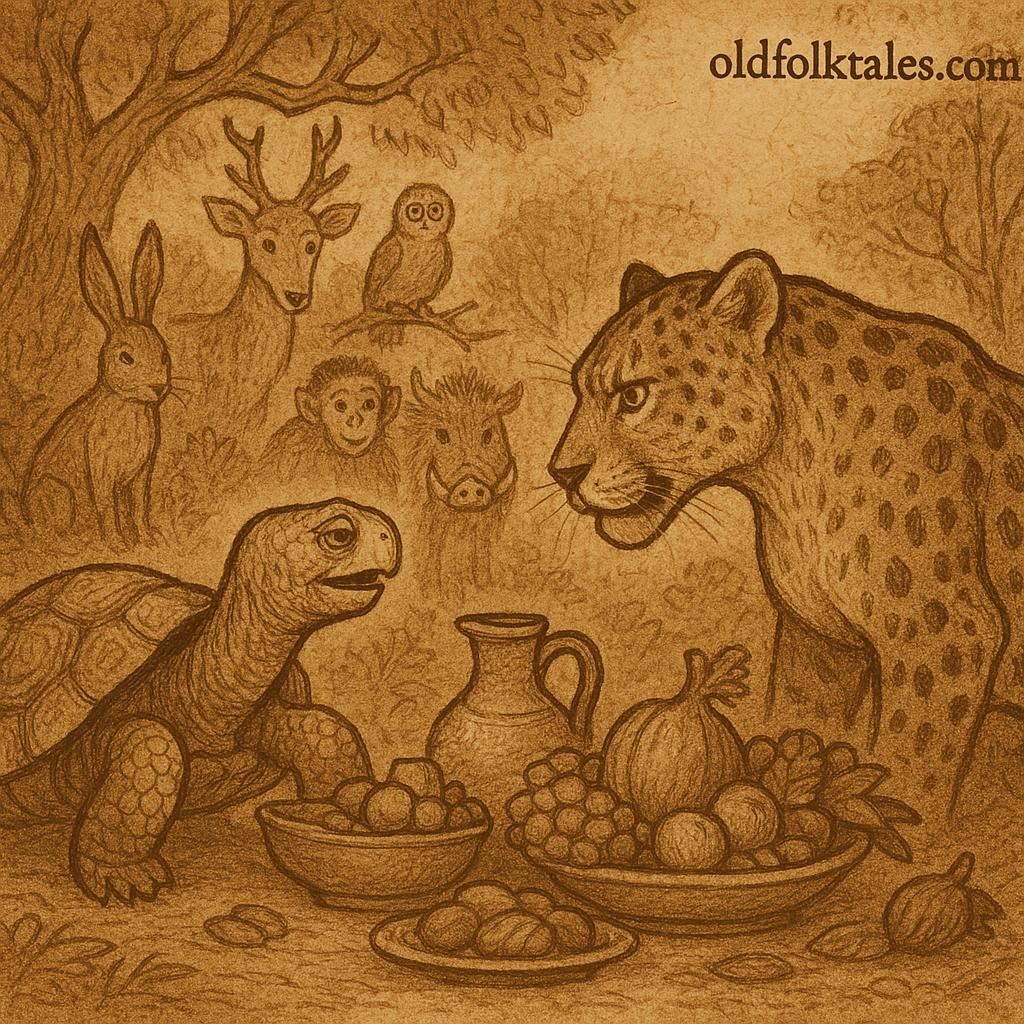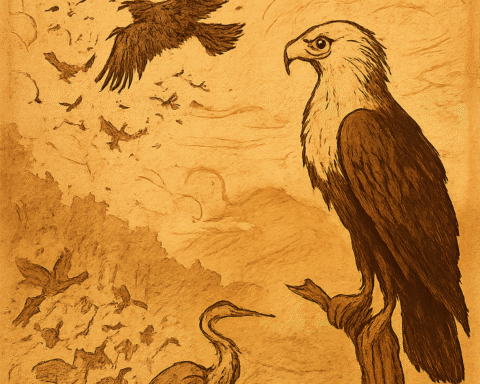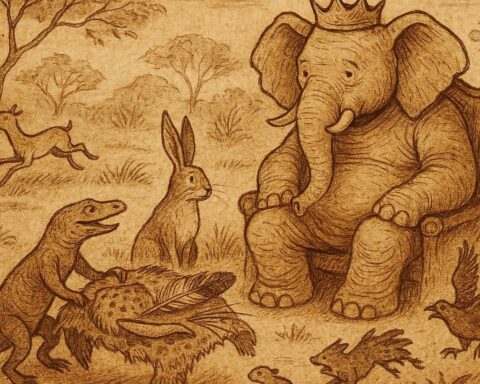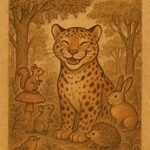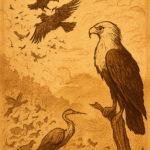Long ago in the forests of Seva, in the Volta Region, the animals gathered for a great feast. The leopard, known for his strength and fierce presence, had invited everyone to celebrate the season of abundance. The air was thick with the scent of roasted fruits and smoked meat, and the trees trembled under the weight of the feasts laid out on large leaves. Birds sang from the branches while monkeys swung excitedly from vine to vine. Every creature was eager to attend, yet there was a quiet tension in the forest because everyone knew the leopard could be fierce with those who displeased him.
Among the animals sat the tortoise, small, slow, and often underestimated. Unlike the others, the tortoise relied not on muscle or speed, but on his clever mind and careful patience. As he approached the feast, he saw the leopard stretching his strong legs, showing off his power, and the other animals nodded nervously in his presence. The tortoise smiled to himself, thinking, Strength may impress, but wisdom will endure.
READ THIS: The Spider Who Tried to Steal Wisdom
The feast began with laughter and chatter as the leopard claimed the choicest portions. He ate with pride, showing off his hunting trophies and growling whenever anyone reached for more than their share. The tortoise waited patiently, observing the behavior of the leopard and the reactions of the other animals. He noticed that the leopard grew impatient and boastful when others tried to speak, always asserting dominance over anyone who dared question him.
When the leopard announced that the remaining delicacies would be divided according to strength, the other animals shivered. The strongest would get the most, he said, while the weakest would be left with the scraps. The tortoise, though small, had a plan. He requested politely, If it pleases you, mighty leopard, may I show how even a small creature can gain his share with cleverness? The leopard laughed loudly, amused by the tortoise’s audacity, but he nodded, curious to see what the little creature might do.
The tortoise spoke slowly and thoughtfully, pointing out that a feast was meant to bring joy to all, not only those with strength. He suggested a contest of wits instead of strength to determine how the remaining food should be shared. The leopard, intrigued by this unusual challenge, agreed. The animals watched with bated breath as the tortoise asked questions, told riddles, and used clever arguments to confuse and entertain. Each time the leopard tried to assert his strength, the tortoise countered with patience and careful reasoning, turning the leopard’s aggression into amusement and eventually into respect.
Hours passed, and the feast continued. The leopard, though still powerful, realized he could not outwit the tortoise. The small tortoise used stories, clever wordplay, and logic to show that wisdom could win where brute force failed. Finally, the leopard laughed, acknowledging that the tortoise had taught a lesson in cleverness and justice. He agreed that the food should be shared according to merit and cleverness, not only physical strength. The tortoise smiled quietly, knowing that patience and intelligence had allowed him to secure his portion without conflict or force.
From that day, the animals of Seva remembered that strength alone was not enough to succeed. The story of the tortoise at the leopard’s feast spread through the forests, teaching all that cleverness and careful thinking could overcome even the most intimidating challenges. Even the leopard learned humility, understanding that power and might must be balanced with wisdom and fairness. The feast became a symbol in the forest of cooperation, cleverness, and respect, where all animals could share and celebrate together.
Moral Lesson: The story of the tortoise and the leopard’s feast teaches that intelligence, patience, and clever thinking can overcome brute strength. Wisdom and wit are as powerful as physical power, and using them carefully ensures fairness, survival, and respect among all.
Knowledge Check
What was the main challenge at the leopard’s feast?
Answer: The leopard wanted the remaining food to be divided according to strength, favoring the powerful while leaving weaker animals with scraps.How did the tortoise respond to the leopard’s plan?
Answer: The tortoise suggested a contest of wits instead of strength, using clever arguments, riddles, and patience to secure a fair share.Why did the leopard agree to the tortoise’s challenge?
Answer: He was intrigued and amused by the tortoise’s audacity and wanted to see how a small, clever animal could match his power.What lesson did the leopard learn from the tortoise?
Answer: The leopard learned that strength alone is not enough and that cleverness, patience, and wisdom are equally important.How did the other animals benefit from the tortoise’s cleverness?
Answer: The food was shared more fairly, and all animals realized that intelligence and strategy could protect and help them in the forest.What is the main theme of The Tortoise and the Leopard’s Feast?
Answer: The main theme is that cleverness and wit can overcome brute strength, and patience and intelligence bring fairness, respect, and survival.
Source: Ewe folktale, Seva, Volta Region. Recorded by Kofi Dorvlo in Verba Africana: Ewe Stories and Storytellers(2005).
